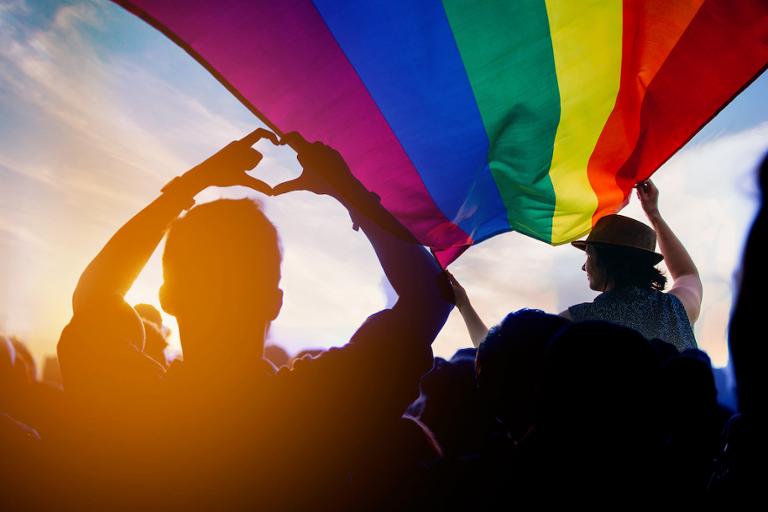In the kaleidoscope of human diversity, the LGBTQ+ community shines with its array of colors, each representing a unique blend of identities, experiences, and narratives. Yet, this vibrant spectrum is often met with a myriad of sociocultural roadblocks. Despite the progress made in recent years in terms of acceptance and rights, challenges persist – hurdles that run deep into the fibers of our societal norms, policy frameworks, and personal biases. So, this blog post aims to shed light on these LGBTQ challenges in society. And ultimately, fostering an environment where everyone – irrespective of their gender or sexual orientation – can feel accepted and valued.
Contents
What Are Some LGBTQ Challenges In Society?
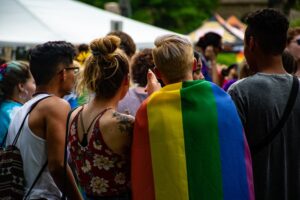 As we embark on the journey of understanding the spectrum of human identity and sexuality, it’s vital to acknowledge the multifaceted LGBTQ challenges in society. The following is a list of some of these common challenges:
As we embark on the journey of understanding the spectrum of human identity and sexuality, it’s vital to acknowledge the multifaceted LGBTQ challenges in society. The following is a list of some of these common challenges:
Social Stigma and Discrimination
The LGBTQ+ community faces significant social stigma and discrimination. This is largely rooted in societal norms, cultural beliefs, and personal biases. That leads to a lack of acceptance and respect for LGBTQ+ identities. This can range from casual microaggressions to outright acts of hate and violence. Some LGBTQ+ individuals experience ostracism from their communities or families, while others may face harassment or physical harm. These experiences can contribute to a sense of isolation, low self-esteem, and increased risk of mental health issues among the LGBTQ+ population.
Legal Challenges
Despite progress in certain areas, many countries still lack comprehensive laws to protect LGBTQ+ individuals. In some places, acts like same-sex relations or gender transition are criminalized, which puts individuals at risk of imprisonment, violence, or even death. Even in countries where homosexuality is legal, other protective laws might be lacking. For instance, employment law may not protect against discrimination based on sexual orientation or gender identity, allowing employers to fire or refuse to hire people because of their LGBTQ+ status.
Healthcare Barriers
Discrimination can also infiltrate healthcare systems, creating numerous barriers for LGBTQ+ individuals. These include stigmatization by healthcare providers, refusal of care, inadequate or disrespectful treatment, and lack of provider knowledge about LGBTQ+ health issues. Transgender individuals, in particular, may find it challenging to access the necessary health services. Such as hormone therapy or gender-affirming surgeries. Moreover, a lack of sex education that includes LGBTQ+ relationships and experiences can lead to higher risks of sexually transmitted infections.
Mental Health Issues
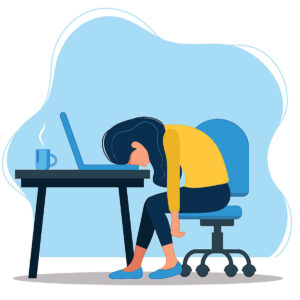 The experiences of social rejection, discrimination, and internalized negative feelings related to one’s sexual orientation or gender identity (known as internalized homophobia or transphobia) can lead to increased rates of mental health disorders among LGBTQ+ individuals. Studies show that this population experiences significantly higher rates of depression, anxiety, self-harm, and suicidal thoughts or actions compared to their heterosexual, cisgender peers. The impact of these mental health issues can be severe, affecting a person’s ability to work, maintain relationships, and lead a fulfilling life.
The experiences of social rejection, discrimination, and internalized negative feelings related to one’s sexual orientation or gender identity (known as internalized homophobia or transphobia) can lead to increased rates of mental health disorders among LGBTQ+ individuals. Studies show that this population experiences significantly higher rates of depression, anxiety, self-harm, and suicidal thoughts or actions compared to their heterosexual, cisgender peers. The impact of these mental health issues can be severe, affecting a person’s ability to work, maintain relationships, and lead a fulfilling life.
Challenges in Education
LGBTQ+ students often face a host of challenges in educational environments. Bullying, harassment, and discrimination from both peers and school staff can create an unwelcoming and unsafe learning environment. The use of derogatory language and the threat of physical violence can be common experiences. In addition, many schools lack comprehensive policies to protect LGBTQ+ students. And sex education programs often do not include information relevant to these students.
This lack of inclusion and protection can lead to absenteeism, lower academic performance, and higher drop-out rates among LGBTQ+ students. Moreover, educators might lack the training and resources necessary to support LGBTQ+ students effectively.
Economic Inequality
Economic disparity is a pervasive issue within the LGBTQ+ community, largely influenced by discrimination and bias. Job discrimination based on sexual orientation or gender identity can limit employment opportunities for LGBTQ+ individuals. They may be unjustly fired, passed over for promotions, or not hired in the first place because of their identity.
This inequality extends to income, with studies indicating wage gaps between LGBTQ+ individuals and their heterosexual peers. These economic challenges can often lead to higher rates of poverty and homelessness within the community, particularly among LGBTQ+ youth who might be kicked out of their homes after coming out to their families.
Family Acceptance
Coming out to family and friends can be an intensely challenging process for LGBTQ+ individuals. While some families are supportive, others may reject their loved ones because they cannot reconcile their preconceived notions of gender and sexuality with their family member’s identity. This rejection can have severe emotional and psychological impacts. Eventually, leading to increased rates of depression, anxiety, substance abuse, and even suicide among LGBTQ+ individuals. In the worst cases, it can result in homelessness, particularly among LGBTQ+ youth.
Media Representation
Representation matters, and the lack of it for the LGBTQ+ community in media and popular culture can be damaging. When present, portrayals of LGBTQ+ individuals are often stereotypical, overly sexualized, or focused on trauma. These portrayals can perpetuate misunderstanding and stigmatization of the community.
Lack of representation also denies the community of role models and affirming narratives that help foster self-acceptance and societal understanding. Conversely, positive and accurate representation can lead to increased acceptance and normalization of LGBTQ+ identities.
Challenges Specific to the Transgender Community
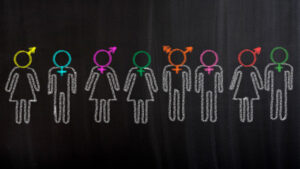 Transgender individuals face unique challenges, even within the broader LGBTQ+ community. Legal recognition of their gender identity is a significant hurdle in many countries, often requiring invasive procedures or diagnoses of mental illness. In healthcare, access to necessary gender-affirming care like hormone therapy or surgery can be denied, delayed, or unaffordable.
Transgender individuals face unique challenges, even within the broader LGBTQ+ community. Legal recognition of their gender identity is a significant hurdle in many countries, often requiring invasive procedures or diagnoses of mental illness. In healthcare, access to necessary gender-affirming care like hormone therapy or surgery can be denied, delayed, or unaffordable.
Public facilities such as bathrooms or changing rooms can become places of conflict, harassment, or violence. Transgender people also face high rates of discrimination and violence, including alarmingly high rates of murder, particularly for transgender women of color.
Intersectional Discrimination
Discrimination rarely occurs in a vacuum, and for LGBTQ+ individuals who also belong to other marginalized groups (such as racial or ethnic minorities, disabled individuals, etc.), the effects can be compounded. This concept, known as intersectionality, recognizes that individuals can face multi-faceted bias based on several aspects of their identity.
For instance, a Black transgender woman might face discrimination based on her race, gender identity, and gender expression simultaneously, each aspect amplifying the others. This intersectional discrimination often results in greater economic, social, and health disparities.
In the end, it is not just about navigating the rainbow but reshaping the world around it. And also, creating an inclusive society that celebrates diversity, ensures equal rights, and eradicates the hurdles faced by the LGBTQ+ community.
Myths And Misconceptions About LGBTQ Community
Misinformation and misconceptions can create barriers to understanding and acceptance of the LGBTQ+ community. Here are some common myths and the realities that counter them:
- Myth: Being LGBTQ+ is a choice
Reality: Sexual orientation and gender identity are integral aspects of a person’s identity, not choices. Many experts agree that these aspects are determined by a complex interplay of genetic, hormonal, and environmental factors.
- Myth: All LGBTQ+ individuals are easily identifiable
Reality: There is no specific way that LGBTQ+ individuals look, talk, or behave. Stereotypes can be harmful and do not encompass diversity and individuality within the community.
- Myth: Bisexual individuals are just confused
Reality: Bisexuality is a valid sexual orientation representing attraction to both men and women. It’s not a sign of confusion or indecisiveness.
- Myth: Transgender individuals are just going through a phase
Reality: Being transgender is a deeply held aspect of one’s identity. It’s not a phase or a fleeting feeling. Transgender individuals often experience a persistent, long-term disconnect between their gender identity and the sex assigned to them at birth, a condition known as gender dysphoria.
- Myth: Homosexuality is a modern, Western concept
Reality: Same-sex attraction has been documented throughout history and across cultures. It is not a recent phenomenon nor exclusive to Western societies.
- Myth: LGBTQ+ individuals are a danger to children
Reality: There is no correlation between an individual’s sexual orientation or gender identity and a propensity to harm children. This harmful stereotype has been debunked by numerous scientific studies.
- Myth: Being LGBTQ+ is a mental illness
Reality: Being LGBTQ+ is not a mental disorder. This misconception has been refuted by leading health organizations, including the American Psychiatric Association and the World Health Organization.
Understanding and debunking these myths is a crucial step toward fostering an accepting and inclusive society for all.
Strategies To Cope With LGBTQ Challenges In Society
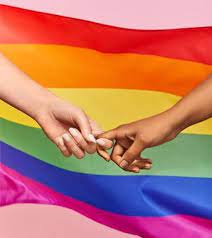 Coping with the societal challenges faced by the LGBTQ+ community involves both individual and collective efforts. Here are some strategies that may help:
Coping with the societal challenges faced by the LGBTQ+ community involves both individual and collective efforts. Here are some strategies that may help:
1. Find Supportive Networks
One of the most helpful ways to cope is to find supportive friends, family members, or communities who understand and validate your experiences. Join local or online LGBTQ+ groups, participate in community events, or connect with LGBTQ+ resources in your area or online.
2. Seek Professional Help
Therapists or counselors, particularly those specializing in LGBTQ+ issues, can provide valuable tools to manage stress, build resilience, and improve mental health. For those in crisis, reaching out to LGBTQ+ helplines or crisis centers is important.
3. Education
Educate yourself about LGBTQ+ history, rights, and issues. This can provide a sense of community, validate your experiences, and arm you with the knowledge to engage with those less understanding or accepting.
4. Advocate for Policies and Rights
Engage in activism, either alone or as part of a group. This could involve advocating for policy changes, participating in peaceful protests, or raising awareness about LGBTQ+ issues. By advocating for rights and acceptance, you can help create a more inclusive society.
5. Practice Self-Care
Regular exercise, a balanced diet, enough sleep, and mindfulness practices can help manage stress and contribute to overall well-being. It’s also important to take breaks from social media or news when needed.
6. Set Boundaries
It’s okay to distance yourself from people or environments that are harmful or unsupportive. Prioritize your mental and emotional well-being.
Each person’s journey is unique, and what works for one might not work for another. It’s important to find strategies that suit your personal situation and needs to cope with LGBTQ challenges in society. And remember, it’s okay to seek help.
Conclusion
In conclusion, LGBTQ challenges in society can range from social stigma and discrimination to healthcare barriers and legal issues. And the struggle for acceptance and equal rights is multifaceted. It’s vital that we continue to debunk myths and misconceptions, encourage open dialogue, and cultivate a deeper understanding of the community’s realities.
Remember, fostering an inclusive, accepting world involves not only acknowledging the existence of these challenges but also actively working to dismantle them.
Life may sometimes be challenging for people from LGBTQ community, but Online LGBTQ Counseling can help. Get experienced LGBTQ therapists at PrideMantra: Book a trial LGBTQ therapy session
